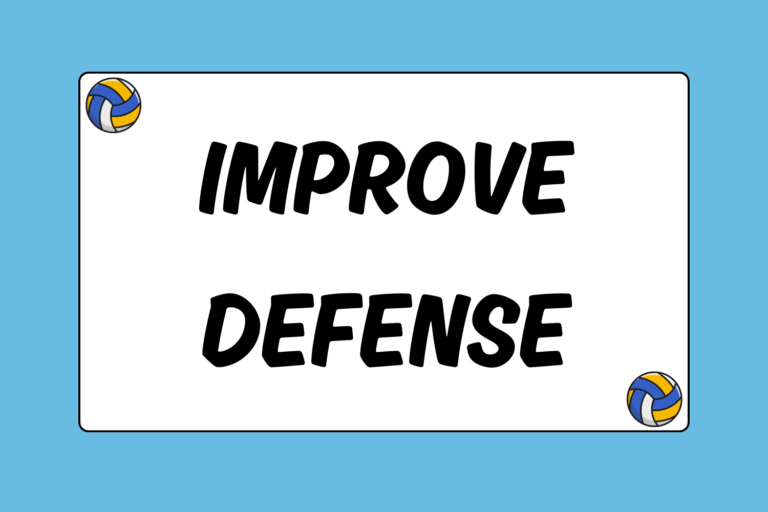There’s no doubt about it: Club volleyball is a big commitment. You could easily find yourself on the road multiple weekends in a row, and club fees can run from hundreds to thousands of dollars per season.
Such a significant commitment isn’t a choice that should be taken lightly. With so many clubs to choose from and each claiming to offer a superior product, narrowing down a list of prospective clubs can be difficult. Here are some tips and suggestions that will help you find the perfect club:
Ask the right questions
The key to finding a club that is a good fit for you and your athlete is research. Researching clubs without a clear grasp of your goals and expectations is an exercise in futility. So before you jump on the internet, it would be highly beneficial to set aside some time for you and your athlete to discuss goals and expectations for the upcoming season. It is important to be realistic when developing goals, because your goals and expectations will help establish the criteria that will guide you in your quest for the right club.
If you are having trouble determining your level, here are a few helpful questions:
What are your athlete’s future goals with the sport?
Answering this question will be a tremendous help in determining the kind of club for which your athlete should tryout. Having a good sense of you and your athlete’s expectations before you begin the process of selecting a club is a must. As the sport has continued to increase in popularity, so too has the amount of clubs available to young athletes. Sorting through the numerous options will be made much easier if you have a solid idea of what you are looking for.
- For example, if your athlete is looking to increase his/her exposure to college scouts, then your best bet would probably be a club that attends numerous national tournaments.
- Due to the fact that the high school volleyball season runs at the same time as the college season, college programs do not have as much time to scout and recruit during the season.
- With that, the club season has become the primary recruiting ground. There are specific tournaments that are traditionally recruiting tournaments. You would be well served to play for a club that attends these tournaments on a regular basis.
Also, if your athlete is looking to play recreationally, then you might want to consider a club that offers an area league option. Teams in these leagues tend to practice less and compete in local tournaments. They are also often a fraction of the price of travel teams that regularly attend national tournaments.
Finally, if you are trying to improve for the high school season, then maybe you should consider a mid-level team.
How do your skills rate in comparison to others in your age group?
Think about the best players you’ve played against, the kids that are perennial MVP candidates or staples on the all-star team rosters. These are the athletes that you will be competing with if you want to play for an elite-level club team. If you compare favorably to the aforementioned athletes, then an elite club team would probably be the best fit. However, if you’re not quite at that level, a mid-level team could be the better option.
Are you a multi-sport athlete?
Because the club season runs from early November until late June, it often conflicts with other sports. Some volleyball clubs do not allow athletes to miss practices, while others are more lenient. If you are a multi-sport athlete, you should determine whether or not you are willing to deal with potential time conflicts.
Develop a Criteria
Now that you have determined your goals and expectations for the upcoming season, you are ready to make a list of the qualities you want in a club. Knowing what you are looking for will help narrow down the clubs for which you plan to tryout. Don’t forget to consider many different factors while developing your list. A few of the major things to consider are:
- Budget: Depending on the type of club, fees can become an obstacle. In addition to the club fees, there could also be additional expenses for things like uniforms, travel and food. Try to set a tentative budget, keeping in mind that you might need to revise that budget once you begin your research.
- Travel: Some tournaments can last up to four days and an event like that can require the athlete to miss a few days of school. Because of the travel, some clubs require parents to chaperone a certain number of tournaments. So before looking at specific clubs, determine if you will be able to adapt to extended time away from home.
- Team size: It’s simple math here: The larger the number of kids on a team the less playing time there is to go around. If you are looking to optimize your chances of receiving a significant amount of playing time, you might want to consider trying out for a club that believes in smaller teams.
Research
Research is paramount in making sure the club you ultimately choose is a good fit. Take the criteria you developed and make a list of clubs that meet your criteria. Below you will find a few links to aid you in your research:
- USA Volleyball: USA volleyball has divided the country into regions and each region is responsible for overseeing club volleyball in their respective region. Here is a link to help you find the website for your region.
Into the Lion’s Den
Now that you have your list of clubs that meet your criteria, it’s time to prepare for tryouts. The first thing you need to do is determine dates and times those clubs are holding tryouts. Most clubs will list tryout information on their website – which you should be able to find through the region website. Once you have the dates handy, you’re ready for tryouts.
While the athlete definitely has a large amount of influence in regards to whether or not he/she makes a given team, it is important to remember that the athlete is limited. In other words, one could practice hard and be the best player in the gym at a tryout but still not make the team. It is important to remember that a coach’s evaluation at a tryout is subjective – it’s an opinion, not a fact.





